Cow Tipping: a National Disgrace
Massie's organization mounted a public awareness campaign.
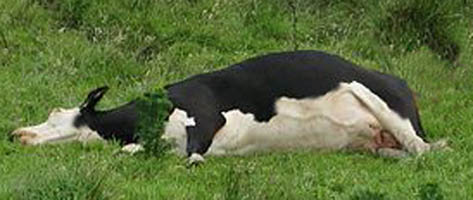

|
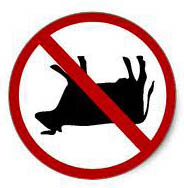
|
Reginald looked up at his brother over his coffee to see Massie grinning from ear to ear. Massie drawled with an emphasis on every word, “I have an idea, Reginald.” Reginald knew all about Massie’s ideas. Growing up, Massie always had these ideas. Massie said, “Have you ever heard of the T.V. show Hoss Traders? In fact, it was among Reginald’s favorites. Massie leaned over, “I think we can get your little mule on Hoss Traders. Their producer will love this. He will love you, Reginald.” Reginald did look the part. It seemed that a lot of the men you saw on Hoss Traders were Southern, more than somewhat overweight and fast talkers. Reginald was already picturing what it would be like to be on reality TV.
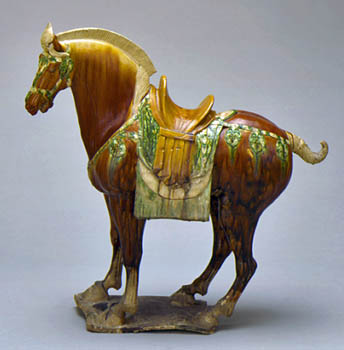
|

|
“So, what did you say?” said Mrs. Boccamotore. “I said no.” said Mr. Boccamotore. “I could never sell Maria’s pony, not for all the money in the world.” “Still that is an awful lot of money.” said Mrs. Boccamotore. “It would break her heart.” said Mr. Boccamotore. Alice Boccamotore knew her husband was right. There were things that money could not buy, and the happiness of her daughter, Maria, was one of those things. She did not say anything to her husband, but it also occurred to her that they were about to travel to Los Angeles to appear on Hoss Traders, and now this mysterious offer to purchase Atlas for a breathtaking sum of money. Somehow, it all seemed very unsettling, and she could not shake a feeling of apprehension deep in her gut. Meanwhile, far away in a darkened bedroom in China, an important man wearing a grim expression on his face repeated the words slowly in the Shanghainese dialect, “By any means possible.” On the other end of the phone was Zhang’s principle operative, Fu Wei. He was a former member of the People's Liberation Army Special Operations Forces, and he knew exactly what Zhang meant. This American had insulted his boss by his refusal of his boss' more than generous offer and such an insult must be punished.
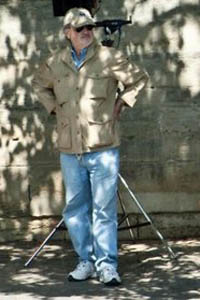
|
Reginald Bogy had stepped behind a building. He called the number on his disposable cell phone. He repeated the words, “It’s time.” The night before an Asian gentleman had approached him in the bar at the motel where they were all put up. Bogy had just struck out and was a little irritated with the man, but was surprised to find out that the man knew exactly who he was and offered Bogy 100,000 dollars cash to deliver Atlas to the back gate of the studio lot. Fu Wei kept repeating that no one needed to know. Bogy’s wife had begun to take an undue interest in just how the family’s money was being spent, and it occurred to Bogy that he might do a lot if he had a slush fund.
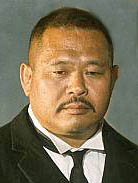
|
Meanwhile, Reginald Bogy slipped back to Atlas’ stall. The entire area was deserted as the workers had all gone over to the front gate curious about all the noise and commotion. Trusting Atlas had just followed him to the back gate and into the hands of a couple of Asian men who were waiting there with a horse trailer. Bogy stuffed a thick envelope of cash into his pocket and soon slipped back into the crowd at the front gate. It was then, and to everyone’s surprise, that it all stopped as quickly as it had begun. In a blink of an eye the angry mob just disappeared, and the 911 call center suddenly came back to life. There was an unreal quality to this, and it seemed to everyone that they had just imaged what had happened. From his command post in a van parked near the studio entrance, Fu Wei took off his headset. This was another stellar performance, and Zhang Gang would be pleased.
However, it was not over. Fu Wei’s careful plan was about to unravel. It was Sun Tzu who said, “To secure ourselves against defeat lies in our own hands, but the opportunity of defeating the enemy is provided by the enemy himself.” Fu Wei had delegated the task of driving the horse trailer to Li Long. Long’s mother, on learning her son was about to go to America, had pressed him to look up his cousin, Kung Pao. Kung Pao owned a Chinese restaurant in Los Angeles, which just happened to be along the route to Long Beach and the waiting ship from Zhang’s shipping line. Li Long did not have the opportunity to see his cousin during the busy preparations for the operation, and this was his last opportunity. He knew he should not make any stops, but he could not face his mother and admit he had failed to visit his cousin.
Station KCBS’s investigative reporter, Don Armand, was lying in wait outside the rear door of Kung Pao’s Chinese restaurant. There had been persistent rumors that Chinese restaurants in the city were serving stray cats and dogs to customers, and he was out to prove it. They had constructed what they thought was an ingenious hiding place for Armand outside the back door of the restaurant using a trash can that appeared just like others in the alley but equipped with a hidden camera that Don could focus on any suspicious activity. The crew had jokingly called him “Don, the Grouch.” Lisa Smith, his vivacious producer, was hidden around the corner with a full camera crew and was to swoop down on the restaurant once Don had the proof they needed. What they had not considered was that the Chinese would use the trash can, and after several hours of waiting, Don was covered with a sticky layer of discarded Chinese food. He hated to think how he would appear on camera and knew that he would become the laughing stock of all of Los Angeles. However, Lisa had forbidden him to abort the mission, and in the trash can he remained. He had totally had it and was about to get out of the trash can when this truck and horse trailer drove up to the back door of the Chinese Restaurant.
Meanwhile back at the studio my little friend Maria Boccamotore had finished her lunch and had become aware of the disturbance at the front gate of the studio. Something deep inside her told her to go and check on Atlas, and off she went. However, Atlas was missing and the totally hysterical Maria soon raised the alarm. The exhausted security personnel could only look at each other and say “What next. “
“You have to do something. They’re going to feed that poor horse to their customers.” the outraged Lisa Smith said over the microphone. The Chinese men had gone inside the restaurant, and Don Armand emerged from his hiding place and unloaded the pony from the trailer. Just then, the back door of the restaurant opened, and a small group of Chinese men emerged into the sun light. Their expression went from extreme happiness, to abject shock and then anger, and they called out what was clearly an alarm in Chinese. In no time a pack of Chinese kitchen workers emerged waving meat cleavers and brandishing kitchen knifes but then hesitated in the doorway. What had so startled the Chinese was that Don in his present incarnation bore an uncanny resemblance to È Guǐ, a much feared demon from Chinese folklore. This spirit haunts streets and kitchens, searching for offerings and rotting food. The Chinese hesitated for what seemed an eternity during which the terrified Don Armand was able to clamor up onto Atlas’ back. Atlas also saw the men as a threat and headed down the alley and around the corner at a full gallop with Armand holding on literally for dear life and screaming to the top of his lungs.
Seeing Atlas getting away, Li Long berated the men’s manhood, and soon the men were in pursuit, È Guǐ or not. One group ran on foot and the rest jumped in the pickup and rode around the block to head down East Broadway after the pony. Lisa and the news crew jumped in their minivan and followed close behind the trailer, flashing their lights and blowing the horn. The trailer swung dangerously back and forth, slamming into parked cars and setting off car alarms as they went. Multiple auto accidents occurred all along the route as motorists tried unsuccessfully to avoid the strange procession.
Things were just getting back to normal (if you can ever call things normal at a 911 call center) when suddenly every phone rang at once. Hysterical people were saying that a monster was running down East Broadway. Others concluded that this had to be beginning of the Apocalypse for it is written "behold, a pale horse, and its rider's name was Death and Hades followed him" or so it seemed to many on East Broadway that day who bore witness to an event that they could not have imagined in their worse nightmare. Everyone seemed to have a different story with each one stranger than the last. The people at the call center had no idea what was going on, but the panic in the voices on the other end of the phones was unmistakable.

|